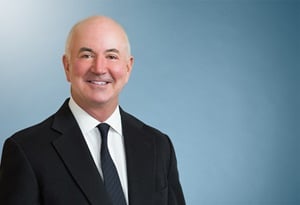The State of the Debt Markets in Private Equity Transactions
Drinker Biddle hosted its 12th annual roundtable discussion of “The State of the Debt Markets in Private Equity Transactions” at Gulph Mills Golf Club in King of Prussia, Pennsylvania on October 9, 2018. At the roundtable, representatives of private equity sponsors, senior lenders, mezzanine lenders and investment bankers participated in a discussion with Drinker Biddle’s private equity and corporate finance lawyers.
The roundtable discussion was preceded by remarks from Ted Karns, a Managing Director at the Princeton University Investment Company (PRINCO). PRINCO is responsible for managing Princeton University’s now $26 billion endowment, and Mr. Karns co-leads PRINCO’s private equity efforts, which include investments in buyout and venture capital funds. Mr. Karns’ talk focused on PRINCO’s investment strategy, which is informed by PRINCO’s dual aims: to provide steady support for Princeton University’s current and future operating needs and to preserve the endowment’s purchasing power in perpetuity. As a result, PRINCO’s investment strategy must sustain considerable growth. Mr. Karns explained that PRINCO takes a concentrated, bottom-up approach: choosing the “fewer, better, stronger” opportunities that permit PRINCO to be a meaningful partner to its managers by identifying the best investment management teams with the best investment evaluation processes. Mr. Karns then addressed questions from participants regarding sector specialization by investment managers as well as various fee arrangements.
Following Mr. Karns’ remarks, there was an open discussion among the participants. The discussion focused on the current climate for deals, recent trends and expectations for the future. Below are some highlights:
- The conversation began with a discussion of the mergers and acquisitions market. Participants remarked that the market continues to follow the favorable trend of the previous few years, identifying the tech and energy sectors as particularly active. Nevertheless, participants also noted that some patchiness has developed in the market, citing concerns over trade and the effects of strategic buyers as possible causes. Ultimately, participants agreed that the market remains a seller’s market, in part due to the abundant supply of equity and other capital.
- Discussion then turned to the credit market. Participants described a loose market that reflects the prominence of alternative lending sources and the continuing effects of regulation on traditional lenders. Although a theoretical willingness of commercial lenders to bridge the perceived gap with alternative lenders was described, it was noted that, practically speaking, commercial lenders remain primarily focused on preserving existing relationships and are more willing to be flexible when they have a history with the borrower or sponsor. Nevertheless, regardless of the relationship history, participants acknowledged that asset-based loans present a commercial lending structure that is well-suited to the current market climate.
- Participants discussed the trends and influences affecting the mergers and acquisitions and financial markets. This included conversation on the overall confidence of market participants in the health of the market. Some participants discussed gathering headwinds for the market, including tax headwinds (the unattractiveness of tax inversions) and regulatory headwinds (increased antitrust scrutiny), and looming fiscal concerns. However, other participants made the case for continuation of the current economic expansion, citing a lack of obvious excesses in financial markets, the Federal Reserve’s latitude on monetary policy, decreased volatility and contemporary examples of extended expansion cycles in economies across the globe.
- Discussion then turned to the impending replacement of the London Interbank Offered Rate (LIBOR) as the reference rate for syndicated loans and other debt products, including a discussion on the Alternative Reference Rate Committee’s recommendation to replace LIBOR with the Secured Overnight Financing Rate (SOFR). This led to a discussion of the methods for implementation of SOFR as the reference rate in existing and future debt transactions and the importance to the success of the replacement rate of determining appropriate credit spreads above SOFR.
- The meeting closed with a discussion of the trends that have emerged or continued in middle market auction processes. Participants described a need to distinguish bids with deal features, such as by including representation and warranty insurance, forgoing financing contingencies and/or exclusivity, and including other “public-like” deal features in private deals because larger investors continue to move down market. Participants also remarked that private equity buyers are bidding on fewer deals due to the expense of reaching the LOI stage in the seller-friendly market.
We will continue to monitor trends and developments in this area. For more information on the matters discussed in this alert, please contact one of the Corporate and Securities lawyers listed below, or your regular contact at Drinker Biddle.
The material contained in this communication is informational, general in nature and does not constitute legal advice. The material contained in this communication should not be relied upon or used without consulting a lawyer to consider your specific circumstances. This communication was published on the date specified and may not include any changes in the topics, laws, rules or regulations covered. Receipt of this communication does not establish an attorney-client relationship. In some jurisdictions, this communication may be considered attorney advertising.










